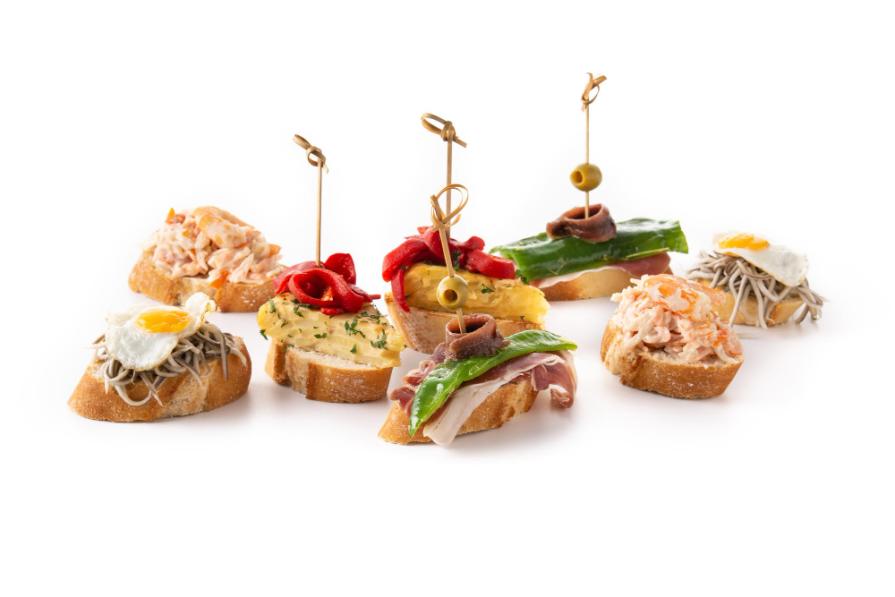Each national cuisine can offer something of its own, which you will not find in other countries. Often, food preferences then turn into national stereotypes: the Italians are called pasta, the Germans are called sausages, and the Spaniards in the Middle Ages and New Times were considered stinks (it was in garlic, which abundantly spices up almost every Spanish dish).
They did not come up with dirty tricks about the British (if you think about it, haggis and plumpudding are dirty tricks). However, there are a number of things that cannot be found outside the British Isles. We will introduce you to seven of these products.

Marmite

Strictly speaking, Mermit is popular not only in Great Britain - jars with an unappetizing-looking mess can be found on the shelves of grocery stores in Australia, New Zealand and the Anglo-Saxon regions of South Africa - in the area of Capa and the former colony of Natal.
It is a rich, thick brown or black-brown putty, with a bright and memorable smell and taste, with a huge amount of "umami" - monosodium glutamate. Mermite is rich in unsaturated fatty acids and B vitamins.
The British believe that Mermite is good for the digestive system. It is very possible - it is made from yeast extract with the addition of all sorts of filth, very high-calorie and multifunctional: it can be smeared on toast, added to ready-made dishes, diluted in hot water and drunk hot, loosening a spoonful of putty on a mug of boiling water.
A peculiar thing. It looks more likely that someone has already eaten it once, but the British like it.
Squash

Squash is a concentrated juice, sometimes with the addition of herbs and various impurities, a huge amount of chemical contamination, sweeteners or sugar. Popular flavors are elderberry extract or ginger with lime.
On average, each bottle contains 30% fruit juice, the rest is flavors, sugar and other fillings. The taste turns out to be too rich and differs from natural juices, as dietary Pepsi differs from classic cola: it seems to be similar, but there is a nuance.
Pork scratching

Pork skins are bits of pork skin or subcutaneous fat, fried in their own ... fat. At the exit, greaves are obtained. Popular in pubs and bars as a beer snack. They are included in the assortment of British McDonald's as an element of local specifics and surroundings.
Yorkshire pudding

Pudding in the Russian tradition is a sweet dessert, sometimes with a filling. But Yorkshire pudding will not sweeten a bitter pill: it is made from flour, milk and eggs, in a word - from batter. This is not a dessert, but part of a traditional Sunday lunch. Served with grilled meat.
Historically, it was made from fat that dripped onto a pallet when cooking meat so that the product does not go to waste.
Twiglets

Twigs, brushwood, sticks - a wheat snack with a characteristic knobby shape and taste reminiscent of mermit (the sticks contain a glaze made from yeast extract). Sold in cellophane bags and metal cans of 200 grams and in cardboard boxes.
Limited flavors are also available - with curry, Worcester sauce, Indian sauces, French mustard. Favorite snack of former British Prime Minister David Cameron and Mr. Bean.
Gravy

Gravy is a gravy in a tin can or in powder form in a bag (or box, can - packaging varies). In general, the island nation's attachment to various kinds of canned food is a mystery without an answer.
English cuisine uses a variety of gravy options - with mushrooms, cream, and various meat broths. A recipe that includes flour, starch and various kinds of seasonings is considered a classic (they also do not disdain monosodium glutamate). You can eat it both with meat and fish, and with vegetables.
HP sauce

Houses of Parliament sauce is a brown sauce named after the British Parliament. It first appeared on the British menu in the late 19th century. The recipe is based on tomato sauce mixed with various vinegars, sugars, dates, rye flour, cornstarch, salt, tamarind and spices. Ironically produced in the Netherlands .









